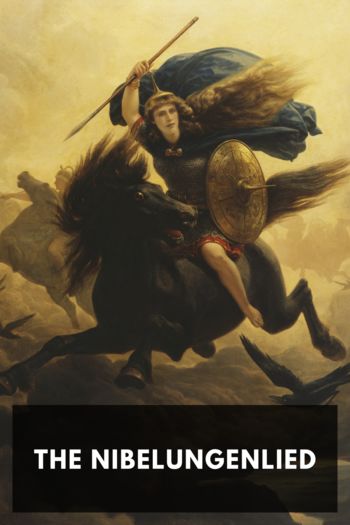The Trials of Radclyffe Hall, Diana Souhami [best sales books of all time .TXT] 📗

- Author: Diana Souhami
Book online «The Trials of Radclyffe Hall, Diana Souhami [best sales books of all time .TXT] 📗». Author Diana Souhami
She went to see John Holroyd-Reece. She showed him John’s letters that said she was well provided for and would have a substantial income. She told him of the ten years of their life together, of John’s demands and expectations and the promises of inheritance she had made. She said it was intolerable to be dependent on Una for her allowance. She could not bear the prospect of deferring endlessly to her. It was not fair that Una should have so much and she so little or that Una should benefit if she, Evguenia, worked. She could not believe John would have changed her will in this way when so near death, unless Una had urged her to do so.
She had gone to the wrong man. Holroyd-Reece managed Una’s money and benefited financially from her. He warned Una that Evguenia could say a lot about her relationship with Radclyffe Hall. He advised her only to make payments erratically to emphasize their voluntary nature. He asked her if it would be worth her while to give Evguenia £5,000 to buy her off to prevent publicity. Una withheld all payments while matters were sorted out: ‘after all my precious, all your dispositions were made in the belief not only that she was not as bad as she seemed, but that your illness had shocked her into penitence and reform, which I knew within a few hours of your death was not (how far from it!) the case.’ John had wanted Evguenia to have an emerald ring of hers. Holroyd-Reece delayed giving her this in case she sold it to finance legal action.
Evguenia saw a solicitor, a Mr Judge. She tried to contest the will on the grounds that Radclyffe Hall changed it in the last week of her life, when she was not rational, and because of undue pressure and influence exercised by Una. ‘It’s all horrible & incredibly vile my darling’, Una wrote to Dear John. She feared ‘yet another court case with implications’, like the Fox-Pitt trial and the two Well of Loneliness trials. ‘I don’t mind a hoot for myself, what can it do to me, for if the world boycotted me I could hardly be more alone in it than I am, but I want universal respect and veneration for you, my beloved in heaven.’
She also wanted all John’s money for herself on earth. She turned to Harold Rubinstein for help. He passed the case over to his partner and brother Stanley. Perhaps he felt he had witnessed too much. He had drawn up the original will in 1938. He knew how protective John was of Evguenia, her concern that she should always be provided for, her desire to adopt her, her anxiety for her naturalization. He must have known that morally Evguenia had a case. But Una, not Evguenia, was his client. He advised her to prepare a statement giving her version of why John changed her will.
Una drew up a curious document which implied more than it answered. Radclyffe Hall, Una wrote, had for nine years and three months done everything, despite ‘grave provocation’, to benefit Evguenia Souline ‘morally and materially’. But her ‘steadfast loyalty’ was to Una to whom during her final illness she had said, ‘It’s entirely for your sake I’m sticking this, darling; I’m not sticking it for Evguenia of whom I’m intensely fond, but who is on the very outskirts of my existence … I want you, you, you,… I want only you in all the world.’
Some thirty years later, long after the principal players in the drama were dead, Una’s literary executor, Horatio Lovat Dickson, asked Harold Rubinstein about the earlier will. Rubinstein replied:
Your letter enquiring about John’s earlier Will could have embarrassed me if I had not been able to tell you that none of the files relating to these matters are now extant, and that my memory is exceedingly tricky … It would be unethical for a solicitor to disclose contents of documents prepared for a client, dead or alive.
What Radclyffe Hall had meant or wanted quickly became irrelevant. What signified was the document she signed in her sloping regressive hand seven days before she died.
Evguenia’s attempts to challenge the will on the grounds of ‘undue influence’ came to nothing. Una, she was told, could give her as little or as much as she liked. Evguenia would have been hard put to find a lawyer to help her with a palimony suit. The Well of Loneliness was still banned as obscene because of its lesbian theme. In 1940 and 1941 convictions had been obtained against booksellers who stocked it. To be lesbian was to be obscene according to the government and the judiciary. Joynson-Hicks and his repressive regime left women like Evguenia stigmatized and unprotected by the law.
Her position was invidious. She was not litigious, she had no money and she was stateless. She did not want to harm Radclyffe Hall’s reputation or for that matter her own. Reticent about having had a lesbian relationship, she thought it in some sense wrong. Dr Armando Child informed Evguenia’s solicitor that in his opinion Radclyffe Hall was rational when she changed her will. Armando Child and Una were on good terms. She paid his bills, bought him dinner, gave him an emerald tie pin of John’s. He gave her a letter for the priest asking that for health reasons she be allowed breakfast before early morning mass.
Stanley Rubinstein advised Una not to write to Evguenia, entertain her, give her presents or have anything to do with her. ‘I would only be





Comments (0)